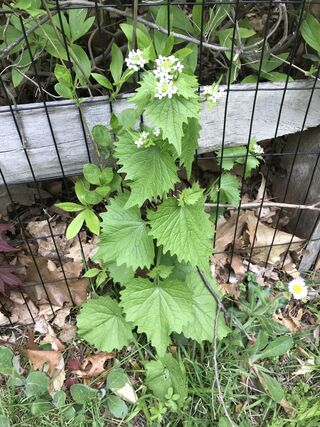Anxiety
How Weeding Taught Me About Radical Acceptance
If I want to have a beautiful garden, I have to accept that I will have to weed.
Posted May 11, 2021 Reviewed by Chloe Williams
Little darlin’ it’s been a long cold lonely winter…
This year, George Harrison’s words sound like a euphemism. After the longest and loneliest winter of my lifetime, the coming of spring is exhilarating. The unfurling of the fiddleheads, the sprouting of the perennials, the return of green leaves – it’s rejuvenating and life-affirming. The daffodils trumpeted Persephone’s return from Hades just as we had our second vaccines and began to slowly creep out of our pandemic lairs. With joy in my heart and a good hat on my head, I donned my new gardening gloves and prepared to…

…weed. Yes, every gardener wants to tend roses and harvest tomatoes, but the truth is that most of what we do is weed. “Weeds,” I can hear my mother saying, “are just lovely plants that grow where they are not wanted.” Radical acceptance in the garden. But in my opinion (to quote President Biden) that’s a lot of malarkey. Sure, some weeds are cute – violets come to mind – but even they are invasive and, ultimately, the enemy. And some weeds are just plain ugly.
Enter garlic mustard. Garlic mustard is my garden nemesis. I am not alone in this feeling. Margaret Atwood famously stalks this heinous plant in the forests of Canada. Masquerading as a wildflower with a tiny, lacy flower, this weed ultimately throws up horns that make it look like it should grow at the gates of Hell. I hate it, and so does my garden. It has to go.
As I was pulling up garlic mustard today, I thought about the first time I pulled up a wheelbarrow full of the nasty stuff. After dumping it out, I felt victorious and triumphant. It was gone. Fat chance. The next year, there was more. There’s apparently no way to eradicate it – I’m just going to have to go after it every year. It’s something that mars my garden about which I need to be constantly vigilant.
So, here’s something I don’t like that keeps coming back and that I keep attacking. It made me think about that idea of radical acceptance. Aren’t we supposed to embrace the inevitable? Love the things we can’t change? Should I just embrace this invasive odiferous plant? Welcome it into my garden? Even eat it? I’m told one can put its leaves in a salad. Not on your life. I’d rather eat dirt.
Well, if I can’t accept garlic mustard into my garden, maybe radically accepting it means that I should learn to love weeding. Apparently, some people enjoy weeding – even find it meditative. I googled “The zen of weeding” and found several lyrical articles by gardeners who seem to love tugging at dandelions. OK, good for them. I’d rather plant seedlings and shape rose bushes, thank you very much.
This all helped me to better understand the concept of radical acceptance. Accepting that the garlic mustard will always be in my garden doesn’t mean that I have to love it and let it proliferate. If I did, it would overrun my salvia, my phlox, and my roses. It also doesn’t mean that I have to love weeding. But if I want to have a beautiful garden – and all the joy that comes with it — I do have to accept something. I have to accept that I will have to weed. Forever.
There are so many things we don’t necessarily like that we have to accept. I like to eat, but, now that I am in my later 50s, I have to accept that I can’t eat ice cream willy-nilly without gaining weight. I like to have friends for dinner, so I have to accept washing dishes. I like to write, so I have to accept editing and proof-reading. These are not things I am happy to accept or do. But if I want to keep my weight down, live in a clean house, and write, I have to accept and be vigilant about these less-than-great parts of life. All the time.
The same holds true for personal traits. Yes, we should radically accept truths about ourselves – for example, that we tend to get anxious, over-eat, or get angry. But it doesn’t mean that we have to welcome them into our personal gardens. We can accept them, understand that they are part of us, and, in that way, forgive ourselves for them. We don’t have to have shame about them, beat ourselves up about them, or get depressed about them. And we can stay vigilant about them, notice them, and try to clear them out to make way for more joyful feelings, noting that we might have to keep it up throughout life. Garlic mustard isn't eradicated by one session of weeding any more than anxiety is eliminated by one course of psychotherapy. They both keep popping up. So be it. As I gaze at my lovely spring garden, I know that I'll be weeding for life.


